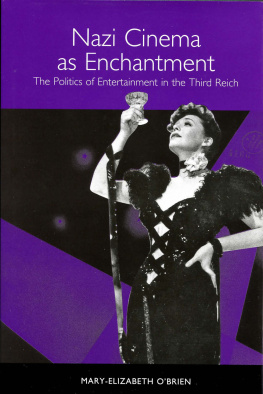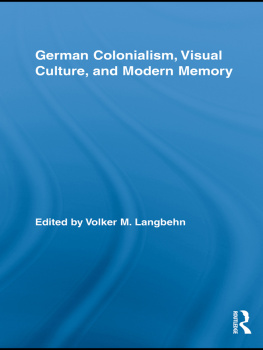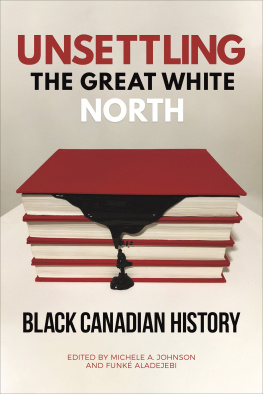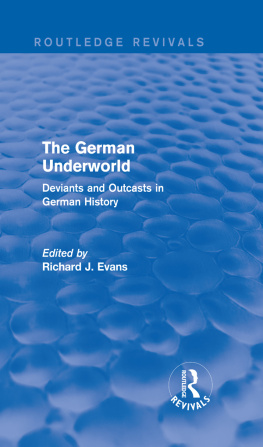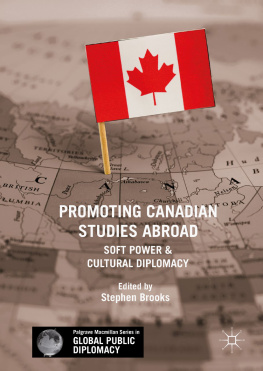Studies in Immigration and Culture
ISSN 1914-1459
Royden Loewen, series editor
17 Being German Canadian: History, Memory, Generations, edited by Alexander Freund
16 Communal Solidarity: Immigration, Settlement, and Social Welfare in Winnipegs Jewish Community, 18821930, by Arthur Ross
15 Czech Refugees in Cold War Canada: 19451989, by Jan Raska
14 Holocaust Survivors in Canada: Exclusion, Inclusion, Transformation, 19471955, by Adara Goldberg
13 Transnational Radicals: Italian Anarchists in Canada and the U.S., 19151940, by Travis Tomchuk
12 Invisible Immigrants: The English in Canada since 1945, by Marilyn Barber and Murray Watson
11 The Showman and the Ukrainian Cause: Folk Dance, Film, and the Life of Vasile Avramenko, by Orest T. Martynowych
10 Young, Well-Educated, and Adaptable: Chilean Exiles in Ontario and Quebec, 19732010, by Francis Peddie
9 The Search for a Socialist El Dorado: Finnish Immigration to Soviet Karelia from the United States and Canada in the 1930s, by Alexey Golubev and Irina Takala
8 Rewriting the Break Event: Mennonites and Migration in Canadian Literature, by Robert Zacharias
7 Ethnic Elites and Canadian Identity: Japanese, Ukrainians, and Scots, 19191971, by Aya Fujiwara
6 Community and Frontier: A Ukrainian Settlement in the Canadian Parkland, by John C. Lehr
5 Storied Landscapes: Ethno-Religious Identity and the Canadian Prairies, by Frances Swyripa
4 Families, Lovers, and Their Letters: Italian Postwar Migration to Canada, by Sonia Cancian
3 Sounds of Ethnicity: Listening to German North America, 18501914, by Barbara Lorenzkowski
2 Mennonite Women in Canada: A History, by Marlene Epp
1 Imagined Homes: Soviet German Immigrants in Two Cities, by Hans Werner
Being German Canadian
History, Memory, Generations
Edited by Alexander Freund
Being German Canadian: History, Memory, Generations
The Authors 2021
24 23 22 21 20 1 2 3 4 5
All rights reserved. No part of this publication may be reproduced or transmitted in any form or by any means, or stored in a database and retrieval system in Canada, without the prior written permission of the publisher, or, in the case of photocopying or any other reprographic copying, a licence from Access Copyright, www.accesscopyright.ca, 1-800-893-5777.
University of Manitoba Press
Winnipeg, Manitoba, Canada
Treaty 1 Territory
uofmpress.ca
Cataloguing data available from Library and Archives Canada
Studies in Immigration and Culture, ISSN 1914-1459 17
ISBN 978-0-88755-847-4 (paper)
ISBN 978-0-88755-597-8 (pdf)
ISBN 978-0-88755-595-4 (epub)
ISBN 978-0-88755-919-8 (bound)
Cover image: Library and Archives Canada, PA-124956. Kurt Meden, immigrant to Canada from Germany, searching for work in Vancouver, BC, January 1959. Photo by Villy Svarre.
Cover design by Kirk Warren
Interior design by Karen Armstrong
Printed in Canada
This book has been published with the help of a grant from the Federation for the Humanities and Social Sciences, through the Awards to Scholarly Publications Program, using funds provided by the Social Sciences and Humanities Research Council of Canada.
The University of Manitoba Press acknowledges the financial support for its publication program provided by the Government of Canada through the Canada Book Fund, the Canada Council for the Arts, the Manitoba Department of Sport, Culture, and Heritage, the Manitoba Arts Council, and the Manitoba Book Publishing Tax Credit.
Contents
Acknowledgements
Introduction
Heavy Baggage: Memory and Generation in Ethnic History
Alexander Freund
Chapter 1
A Flying Piano and ThenSilence: German-Canadian Memories of the Great War
Alexander Freund
Chapter 2
One Fhrer, Two Kings: A Canadian Prime Minister in Nazi Germany and the Dilemma of Responsibility
Robert Teigrob
Chapter 3
A Transnational Yekkish Identity? Comparing German Jews in Canada and Israel
Patrick Farges
Chapter 4
The Roots of Ethnic Fundamentalism in German-Canadian Studies: The Case of Gottlieb Leibbrandt
Karen Brglez
Chapter 5
Gatekeeping in the Lutheran Church: Ethnicity, Generation, and Religion in 1960s Toronto
Elliot Worsfold
Chapter 6
Migration Trajectories and the Construction of Generational Discourses among Contemporary German Immigrants in Ottawa in the 2000s
Anke Patzelt
Chapter 7
We Never Really Talked About It: Second- and Third-Generation German Canadians Family Memories of the Holocaust
Sara Frankenberger
Chapter 8
Creating Family Legacies: Descendants Memorialize Their German Female Ancestors
Christine Ensslen
Afterword
What Does It Mean to be German Canadian? The Challenge of History and the Obligation of Memory
Roger Frie
Bibliography
Contributors
Index
Acknowledgements
The authors wish to acknowledge that much of the research and writing conducted for this essay collection took place in Canada and thus on traditional territory of Indigenous Peoples. We also acknowledge that generations of European, including German, settlers have benefitted from programs of dispossessing and assimilating Indigenous Peoples. We acknowledge that every new settler accepts a new history and with it a responsibility to learn about colonial history and its ongoing legacy.
Even more so than other kinds of publications, a collection of essays is the work of many. I thank the contributors to this collection for their excellent work, their patience, and their desire to improve their essays with every round of revisions, and their enthusiasm for engaging in a meaningful conversation with each other about the many meanings of being German in Canada.
German Canadian Studies is a small field that benefits from institutional support; I gratefully acknowledge the German-Canadian Studies Foundations and the Spletzer Family Foundations long-standing support of German-Canadian Studies at the University of Winnipeg and internationally. Karen Brglez contributed valuable administrative support to this book project (in addition to an excellent chapter). The University of Manitoba Press was the right place to publish this collection, and I am grateful for the support we received from Jill McConkey, Glenn Bergen, David Larsen, and their colleagues. I would also like to thank the anonymous reviewers.
On a more personal note: I began this project in 2016, in the same year that my son, Daniel, was born. Over the past four years, our adventurestogether with his two sisters, Isabel and Gabitaught me many new, sometimes funny or quirky, at other times more serious facets of what it means to be German in Canada. Finally, with my deepest gratitude, I thank my wife Judith for her endless encouragement and love.
Alexander Freund, Winnipeg, February 2021



